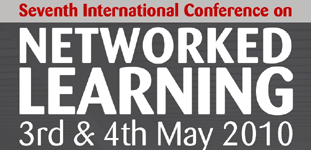

Using Ad Hoc Transient Communities to Strengthen Social Capital: Design Considerations
Sibren Fetter, Adriana Berlanga, Peter Sloep
Open University the Netherlands, Heerlen, Limburg, Netherlands
Abstract
In this paper we argue that Ad Hoc Transient Communities (AHTCs) are a promising means to improve community sustainability by strengthening the social capital of the community. AHTCs are a means through which participants are brought together for a specific, learning-related goal (‘ad hoc’) and for only a limited amount of time (‘transience’). In this paper a first design for an AHTC service is presented which will be implemented in the eTwinning network (+ 70.000 users). Following a short theoretical introduction, a use case is presented outlining how a new participant would use the service. In this use case the participant initially does not know who to contact for asking a question. Using the system, the participant receives an answer from two participants whom were selected by the service. Over time and with more use, the participant has gained many connections with other participants, feels a sense of belonging to the community, as well as is answering questions from others. However, not only the participant that asked the question benefited, also the participants helping did. By working together the invited participants got to know each other as well. Following the use case, important design choices are elaborated upon. These design choices are: Finding the right participants with a matching system, participant accountability through ratings, showing participant’s previous activity and contacts to increase sense of belonging, and accessibility and Usability. Subsequently, related work on Question and Answer websites as well as Question and Answer services is described. Lessons learned from the related work concern the importance of a matching system, finding a balance between public and private questions, the value of ratings as well as the danger of providing paid tutors through the system. Finally, it is concluded that implementing an AHTC service as proposed in this paper should lead to the desired effects on social capital. These effects are decentralizing the social network structure, improving the sense of belong to the community, and increasing mutual support. Testing for these effects will be done with a combination of social network analyses, a questionnaire, and logging data. Based on the design a prototype can be built, while at the same time a user requirement analysis with stakeholders will be conducted, leading to a longitudinal study within the eTwinning network.
| About NLC | Welcome Messages| Acknowledgwments | Conference Proceedings| Keynote Speakers| Index of Presenting Authors| Contact |